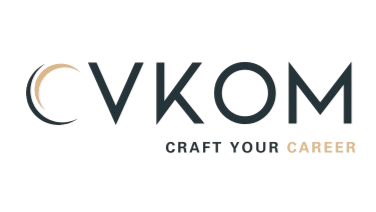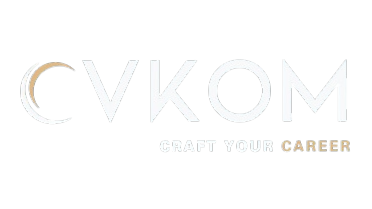How to
Incorporate Career Objectives on a Resume: A Detailed Guide
Including a well-crafted career
objective on your resume can provide employers with a quick insight into your
goals, values, and how you align with the job role. When done effectively, a
career objective helps you stand out, especially if you're entering the
workforce, switching careers, or targeting a specific position. This guide will
explain the importance of career objectives and how to write one that captures
attention.
Why
Include a Career Objective?
- Clarifies Your Intentions: Quickly communicates what you aim to achieve in the
role and how you can contribute to the organization.
- Personalizes Your Resume: Tailors your application, making it feel specific to
the job rather than generic.
- Addresses Career Transitions: Explains shifts in industries or career paths.
- Highlights Key Skills: Summarizes qualifications relevant to the role.
When
to Include a Career Objective
- Entry-Level Candidates: You lack extensive work experience but want to
emphasize your aspirations and transferable skills.
- Career Changers:
You’re transitioning to a new field and need to explain your intentions.
- Role-Specific Resumes: You’re applying for a highly targeted position and
want to align your goals with the job.
How
to Write a Strong Career Objective
1.
Keep It Concise
Limit your career objective to 2-3sentences. Employers skim resumes, so clarity and brevity are key.
2.
Tailor It to the Job
Research the job description and
company values to align your objective with their needs.
3.
Emphasize Value
Highlight what you bring to the
role, such as skills, experience, or attributes.
4.
Focus on the Employer’s Needs
Structure
of a Career Objective
- Your Current Status:
Include your professional level or relevant experience.
- Career Goals:
Mention your aspirations or what you seek in the role.
- Value Proposition:
Highlight what you bring to the company.
Examples
of Career Objectives
1.
Entry-Level Candidate
"Motivated marketing graduate
with strong communication and analytical skills seeking a junior marketing
associate role at XYZ Corporation. Excited to apply knowledge of social media
strategies and content creation to drive engagement and brand growth."
2.
Career Changer
"Experienced customer service
professional transitioning into project management. Eager to leverage
organizational skills and problem-solving expertise to contribute to efficient
project delivery at ABC Solutions."
3.
Industry-Specific Objective
"Results-driven software
engineer with 5+ years of experience in developing scalable web applications.
Seeking a challenging role at Tech Innovations to enhance user experiences and
drive software performance improvements."
4.
Executive-Level Candidate
"Seasoned operations manager
with 15+ years of experience in supply chain optimization and team leadership.
Seeking to bring strategic planning and cost-saving expertise to DEF
Corporation to drive operational efficiency and growth."
Placement
of the Career Objective
- At the Top of Your Resume: Place it below your name and contact information.
- Replace or Complement the Professional Summary: For targeted roles, a career objective can be a
concise alternative to a summary.
Dos
and Don’ts of Career Objectives
Dos
- Personalize for Each Job: Use keywords from the job description.
- Quantify Achievements: If possible, add numbers or measurable results.
- Be Honest: Reflect your true aspirations and skills.
- Use Action-Oriented Language: Words like “seeking,” “driving,” and “contributing”
make the objective more dynamic.
Don’ts
- Be Vague:
Avoid generic statements like “Seeking a job to grow professionally.”
- Focus Solely on Yourself: Emphasize what you can do for the employer.
- Overload with Details: Keep it short and impactful.
- Repeat Your Resume:
Avoid listing skills or experiences already detailed below.
Tips
for Tailoring Career Objectives
- Read the Job Description: Identify specific skills and qualifications the
employer is seeking.
- Research the Company:
Understand their mission and values to align your goals.
- Highlight Relevant Skills: Focus on skills that match the job requirements.
Examples
of Career Objectives for Different Roles
Marketing
"Creative marketing
professional with 3+ years of experience in campaign management seeking a role
at XYZ Corporation to leverage digital marketing expertise in driving brand
growth and customer engagement."
Healthcare
"Compassionate registered nurse
with 5+ years of experience in patient care and emergency services. Seeking to
join ABC Hospital to provide high-quality healthcare and contribute to patient
recovery outcomes."
IT
and Tech
"Detail-oriented cybersecurity
specialist with a passion for safeguarding digital infrastructures. Looking to
apply penetration testing and risk assessment skills at DEF Solutions to
protect sensitive data."
Education
"Dedicated educator with a
Master’s in Curriculum Development seeking a teaching position at XYZ School to
foster innovative learning environments and student success."
Freelance
and Remote Work
"Highly organized freelance
writer with 4+ years of experience creating SEO-optimized content. Seeking a
remote role with ABC Media to deliver compelling, engaging, and results-driven
copy."
Why
Choose CVKOM for Your Resume?
At CVKOM, we specialize in
crafting resumes that highlight career objectives effectively. Our platform
offers:
- Customizable Templates: Designed to showcase career objectives prominently.
- AI-Powered Suggestions: Tailor your objective to match job descriptions.
- Proofreading Tools:
Ensure clarity and professionalism.
- ATS Optimization:
Enhance your resume’s compatibility with automated screening systems.
Conclusion
Incorporating a career objective
into your resume can set you apart, especially in competitive industries or
when transitioning roles. By keeping it concise, tailored, and focused on the
employer’s needs, you can make a strong first impression. Let CVKOM help
you craft a compelling resume that highlights your aspirations and showcases
your value.
Start building your resume today
with CVKOM—where goals meet opportunity!




